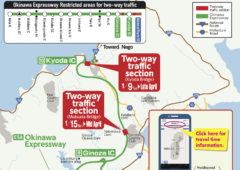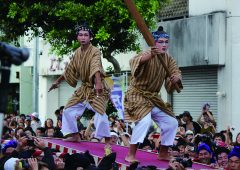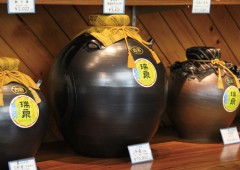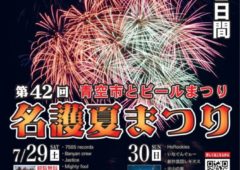2013.05.09
Chinese diplomats wanted America Out in 1950
The winds of change were blowing more than two decades before the United States surrendered control of Okinawa back to Japan in 1972, with China spearheading arguments in 1950 it was a prudent thing to do.
Jiji Press has learned that Chinese diplomatic experts argued in 1950 that Okinawa Prefecture, then under U.S. control, should be returned to Japan out of consideration for Kyuichi Tokuda, then chief of the Japanese Communist Party and a native of Okinawa. Some participants in internal discussions at the Chinese Foreign Ministry, held on May 12-19, 1950, in preparation for World War II peace treaty talks with Japan, insisted that the Chinese government should demand that the United States hand over Okinawa to Japan for the good reason that Tokuda was from Okinawa, a Chinese government document showed. Jiji Press obtained a copy of the 69-page document.
Several former senior officials of the Communist Party of China also acknowledged that the presence of Tokuda was a key factor behind the disappearance of Chinese calls claiming sovereignty over Okinawa after the 1950 discussions. After the end of the war in 1945, Okinawa came under U.S. occupation. There were calls within the Chinese government that the country should take back Okinawa. Okinawa, then called Ryukyu, had tributary relationships with China’s Ming and Qing dynasties until 1609. After a period under the rule of both Japan and China, Okinawa officially became part of Japan in 1879.
According to the document, kept at the Chinese Foreign Ministry’s archives, Li Chunqing, a prominent Japan expert, said during a meeting on territorial issues on May 17, 1950, that Okinawa had no economic values and that there was no reason China should take back Okinawa also in terms of national defense. Li said that if Okinawa reverts to Japan, it would have a good impact on Japanese people and called attention to the fact that Tokuda is a native of Okinawa. Some participants at the meeting said China should maintain its sovereignty claims over Taiwan and Ryukyu in line with the outcome of the 1943 Cairo Conference.
However, Liao Chengzhi, then a senior official of the Communist Party of China with a strong influence on policies toward Japan, said it would not be suitable for China to take back Okinawa because the leader of the Japanese Communist Party is from Okinawa, according to a former senior official of the Chinese Foreign Ministry. Another participant in the meeting voiced concern that Tokuda would become Chinese if Okinawa becomes part of China, the former ministry official said.
Then Chinese leader Mao Zedong took a hostile view of the United States and stood against the U.S. occupation of Okinawa. After a civil war, Mao’s communist party in 1949 had defeated the nationalist party, or Kuomintang, which led the Republic of China as a member of the U.S.-led Allied Forces. While Mao’s way of thinking led many others in the Chinese government to seek the reversion of Okinawa to Japan, the 1950 document revealed that consideration for Tokuda, regarded as a comrade of China in the fight against the United States, played a role in China’s policy toward Okinawa.
An article published in a Chinese government-linked magazine has been confusing experts who believe China does not have sovereignty over Japan’s Okinawa Prefecture. “Japan’s legitimate sovereignty has never extended to Okinawa, not even now,” said the article in the March 16th edition of the World Affairs magazine published by an organization associated with China’s Foreign Ministry.
An 1871 incident that led Japan to send troops to Taiwan marked “a starting point of modern Sino-Japanese relations,” according to the article written by Lei Yuhong of Fudan University’s School of International Relations and Public Affairs. The article stressed that Japan’s annexation of Ryukyu as Okinawa was the beginning of Japan’s invasion of other Asian nations.
Experts say it is quite unusual for a Chinese Foreign Ministry-affiliated magazine to carry an article denying Japan’s sovereignty of Okinawa. The view was floated apparently to add pressure on Japan, said a source with expertise on bilateral affairs. In the 1871 incident, known as the Botansha Jiken in Japan, a ship carrying 69 residents of Miyakojima, a Ryukyu island, drifted to southern Taiwan due to a typhoon. Of them, 54 were killed by indigenous people there. Ryukyu was then under the rule of both Japan and the Qing dynasty China, but following the Botansha incident, Japan’s Meiji government moved to sort out the ownership issue.
In 1872, Japan designated Ryukyu as a “han” feudal domain to clearly show its recognition of the kingdom as part of Japan. Japan sent troops to Taiwan in 1874 in retaliation of the massacre. The Qing dynasty said the part of Taiwan where the indigenous people lived was outside its jurisdiction, recognizing that the victims of the attack were Japanese. In 1879, Japan finished its annexation of Ryukyu, reorganizing the Ryukyu han into Okinawa Prefecture.
Lei’s article insisted that Pacific islands that had maintained their tributary relationship with China for more than 500 years were annexed to Japan by force.
The annexation did not conform to international law, nor was it based on the approval of the Ryukyu rulers and people, the consent of the colonial master, namely the Qing government, or the international community, the article argued.
Referring to Okinawa’s 1972 reversion to Japan, the article said what the United States returned to Japan was the right to govern Okinawa, not sovereignty over it. A Chinese Foreign Ministry executive says China’s Communist Party government has never claimed sovereignty over Okinawa, but views denying Japan’s sovereignty have emerged occasionally in the media since Japan purchased three of the five Senkaku islands in the East China Sea, claimed by China, in September last year. The small islands belong to Okinawa.
On Sept. 12th last year, an article in the Global Times, affiliated with the People’s Daily, said Japan must give up ownership of the Okinawa island chain that it annexed by force.

 2024.02.07
2024.02.07 2024.01.31
2024.01.31 2023.12.11
2023.12.11 2023.11.02
2023.11.02 2023.10.26
2023.10.26 2023.09.29
2023.09.29 2023.09.01
2023.09.01 2023.08.22
2023.08.22 2023.08.15
2023.08.15 2023.07.27
2023.07.27






